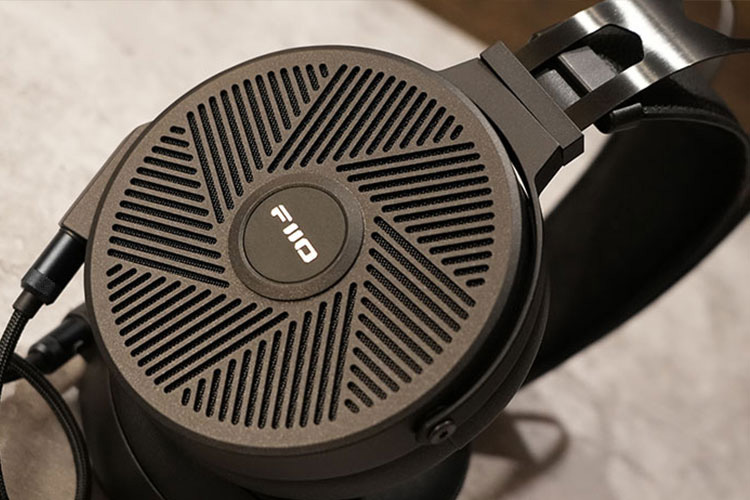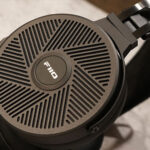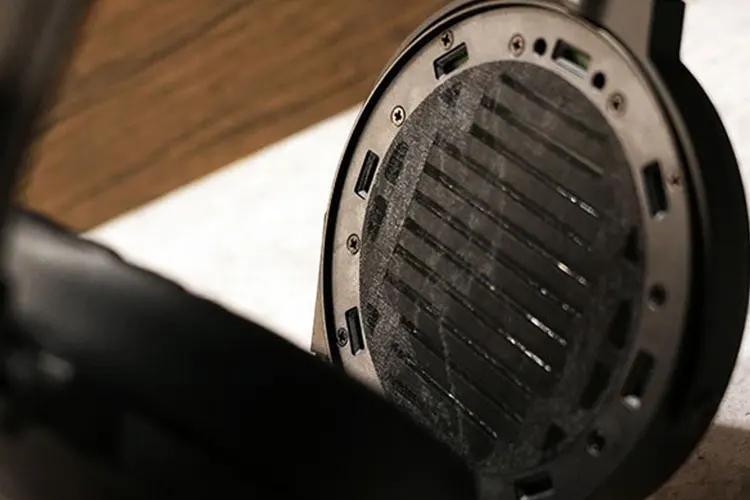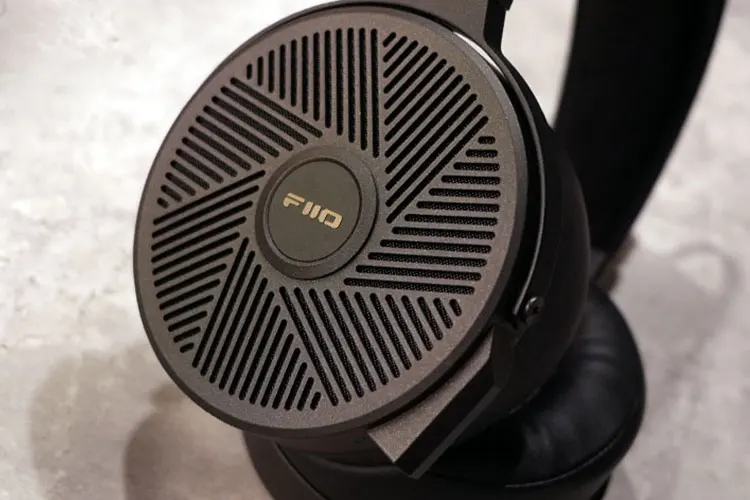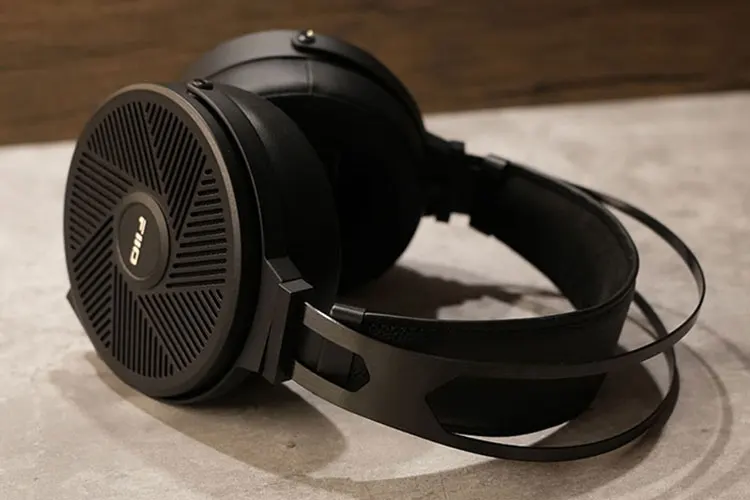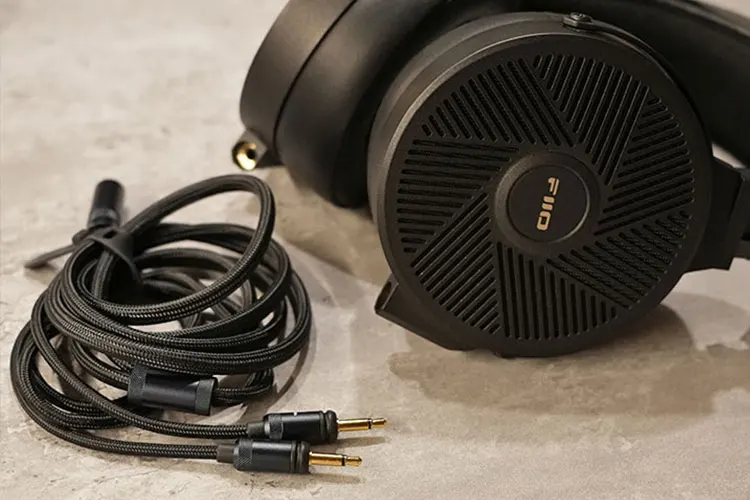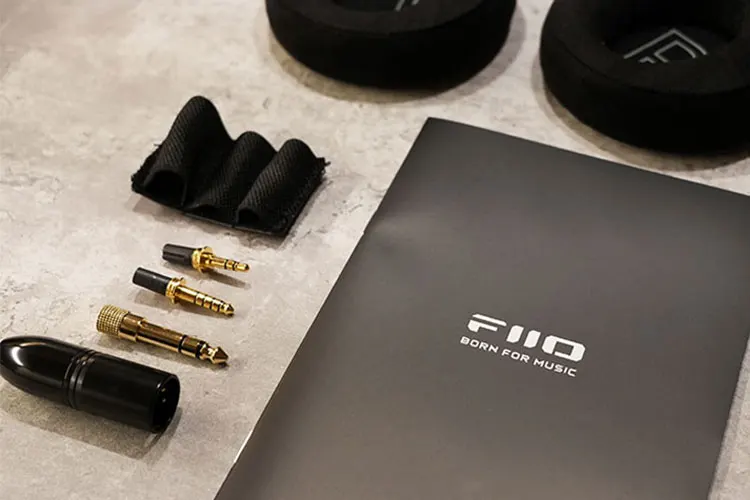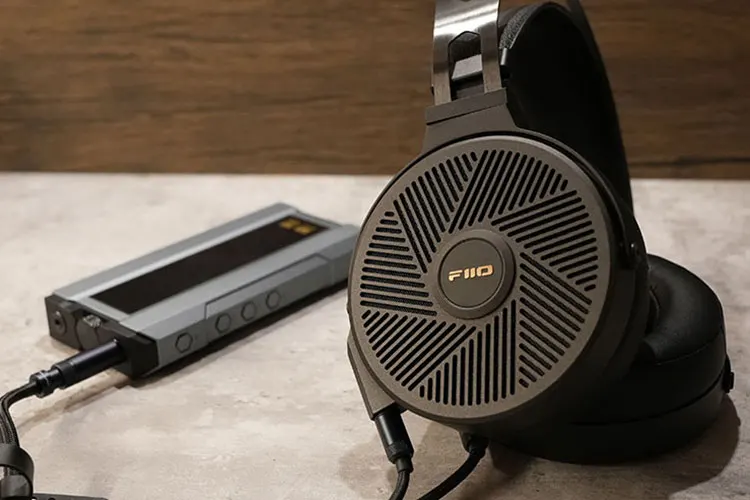In today’s feature, we review the new FiiO FT5, which is the company’s flagship open-back 90mm planar magnetic driver headphones. They are priced at $499 SRP.
Disclaimer: This was sent to us as a sample in exchange for our honest opinion. Headfonics is an independent website with no affiliate links or services. We thank FiiO for its support.
You can click here to learn more about the FiiO audio products we have previously assessed on Headfonics.
Note, that this post follows our current scoring guidelines which you can read in more detail here.
If the FT3 was a bit of a surprise then the new open-back planar magnetic FT5 headphones are even more of an eye-opener from FiiO.
Along with the soon-to-be-released JT1, the company is building a not-inconsiderable lineup of audiophile-grade headphones with the FT5 being the only planar driver version thus far.
At $449.99, the FT5 is FiiO’s current flagship headphone and is sort of staring straight at the likes of the MOONDROP Venus as its main competitor which has a similar price point.
Tech Highlights
The FiiO FT5 is a set of circumaural open-back planar magnetic headphones.
Inside is a large 90mm diameter driver with a dual N52 Neodymium magnet array with up to 1.5T flux, 11 magnets are on the inner side and 9 are on the outer side.
The diaphragm is fairly thin at a micron-level measuring at just 6um thickness which should help with transient response and improved sensitivity but at the same time offer a rich bass response which was one of the goals in the tuning of the FT5.
The FT5 is rated at 36Ω and 110dB/Vrms (@1kHz) or 96dB/mW (@1kHz) for sensitivity. Overall, it should rate as a relatively efficient and reasonably sensitive planar headphone but you can find out just how it performs on page 2 of this review in our synergy section.
Design
The FiiO FT5 stands out as possibly the most visually appealing planar headphones at this competitive price point thanks to its sleek matte black paint job.
Its body is constructed using a lightweight magnesium alloy, striking a balance between solidity and weight. Notably, the design features certain angles reminiscent of FiiO’s M-series Digital Audio Players (DAPs) such as the M11s.
Furthermore, the hinges and self-adjusting headband move with impressive smoothness, enhancing the overall user experience. The detachable cable incorporates a special connector that ensures a secure connection through an additional friction lock mechanism.
In terms of build quality, the FT5 surpasses even some of FiiO’s DAPs, and can even be compared to headphones priced significantly higher.
The overall construction exudes a sense of premium craftsmanship that is rare to find at this price point.
Comfort
The decision to use magnesium alloy for the frame of the FT5 not only ensures a robust build quality but also helps in maintaining a manageable weight.
This lightweight construction is particularly beneficial for extended listening sessions, as it reduces the strain on the neck.
FiiO also provides two sets of earpads with the FT5. The suede set enhances tonal balance and dynamics and the protein leather pads sound clearer and more extended according to FiiO.
The protein pads have a small high pass effect possibly since it is leakier, and the suede set has a better seal that enhances the bass delivery.
Stock Cable
The FT5 is equipped with a 1.5m long stock cable that features 392 Silver-plated, monocrystalline structure Copper cores, this is the same cable that comes with the FT3.
The cable has a gauge of 23AWG. It feels sturdy overall, and the areas around the plugs are protected by soft parts, ensuring durability, and preventing damage.
The cable is equipped with interchangeable connectors that you can swap between 3.5mm or 4.4mm connection in a few seconds, and there are also some convertors provided in the package including a 3.5mm to 6.35mm convertor and a 4.4mm to XLR-4 balanced adaptor.
The quality of the cable included with the FT5 headphones is considered quite a bit above average.
However, it’s important to note that if the cable gets damaged, you may need to purchase a replacement from FiiO due to the proprietary plug system, which may limit the options for upgrading or using aftermarket cable alternatives.
Packaging & Accessories
The FT5 headphones come with a faux leather storage case that is designed to accommodate all the plugs neatly taped to the slots inside.
To fit the headphones in the case, you will need to unplug the cable. However, this design choice allows for a more compact case size, which is advantageous for travel.
The case itself is well-built and aesthetically pleasing, even surpassing the appearance depicted on FiiO’s website.
Inside the case, you will find swappable 3.5mm jacks, an XLR converter, and a 3.5mm to 6.3mm converter, which will allow you to connect to basically any amplifier.
Overall, the inclusion of these accessories has surpassed my expectations and demonstrates FiiO’s commitment to this product line and to delivering a comprehensive product experience.
Sound Impressions
The FT5 undergoes over 100 hours of burn-in, and I am currently testing it with the FiiO R7, K9 Pro ESS, and the M11 Plus ESS to assess its response to power and decoding quality.
Summary
The FiiO FT5 has a slight V-shaped tuning and is firm and intensive in the bass even on weaker outputs, unlike most planar headphones I have heard.
Being quite sensitive on paper it sounds detailed and responsive even on weaker DAPs, and the bass could still maintain fair resolution and speed on a dongle. There is a strong sense of definition, with the powerful low-end and non-exaggerated staging bringing about good intimacy and giving an engaging and punchy impression.
The two ends of the spectrum are satisfactorily extended to capture rumbles and harmonics in the treble, showcasing strong technicalities and detail retrieval power while maintaining fairly good tonal balance across the whole output spectrum.
I very much prefer using the protein leather pads which offer more openness, but if you are listening outdoors the suede pads will sound meatier in the lows.
Bass
The FiiO FT5 headphones, despite employing a thin driver membrane, excel in moving a substantial volume of air, resulting in punchy and meaty bass with rapid attack and recovery speed that does not compromise resolution.
Achieving such bass performance with planar headphones is relatively uncommon due to physical limitations. FiiO has undoubtedly raised the bar in this aspect.
The advantage of using a planar driver becomes evident when listening to big drums. Even at higher volumes, the FT5 responds with excellent accuracy and speed, preserving the tight impacts and maintaining good control, which enhances the perceived depth of the drum sound.
Bass instruments are rendered with a full-bodied and textured quality, allowing you to easily discern the intricate details being captured.
Mids
Despite the pronounced bass, the FT5 headphones maintain sufficient clarity and presence in the mid-range frequencies.
The midrange frequencies have a small bump for stronger presence and texture, it is smooth and well-controlled with an adequate definition that allows voices to cut through, and especially darker voices benefit from the rich texture.
The warmth in the mid-bass area contributes to the overall musicality and presence of bass instruments and their harmonics.
It doesn’t take very high gain for the vocal to sound more forward and when plugged into well-controlled, accurate-sounding devices like the RME ADI 2 Pro, it outlines the vocal with good clarity with a distinct, centered image, also enhancing the layering and articulation.
In contrast, although weaker sources may still sound dynamic, the vocal range may feel slightly compressed and flattened, so it is still preferred to pair the FT5 with at least a small amplifier or to put it on a powerful DAP.
Treble
The treble on the FT5 is as intense as the bass. There is a rather sharp roll-off to kill off sibilance but it is carefully executed to not take away the sparkle and air. This makes the overall presentation slightly dark, and swapping to the protein leather pads may help open up the treble to sound airier and more natural.
The treble has a linear presentation that doesn’t overly elevate any particular range, and even at very high volume it still sounds well controlled without distorting, performance is excellent in such regard.
With the suede earpads, the treble feels curtained by the lower frequencies and if listening indoors it is recommended to swap to the protein leather pads, which enhance the overall balance and allow more treble details to be revealed.
Staging
When I first put on the FT5 connecting to the RME ADI 2 Pro, I was quite impressed by its accuracy and transient performance.
The vocals were densely imaged and nicely focused. The soundstage felt natural, without any exaggerated sharpness, giving the sensation of listening in a dampened piano room.
The details were nicely revealed, and it could handle high sound pressure levels while still delivering sufficient dynamics.
This quality proved beneficial when I tested it outdoors, as the ambient sounds compensated for the slight lack of openness, resulting in a strong sense of definition and control.
When I used the protein leather pad extension, the airiness was enhanced, and the bass didn’t feel as intense. This improved the overall balance and created a perceived depth and width when listening indoors.
When using the balanced connection, it became apparent that the separation between instruments was stronger, although the imaging was not as focused and centered as when using the 3.5mm connection.
Click on page 2 below for our recommended pairings and selected comparisons.




